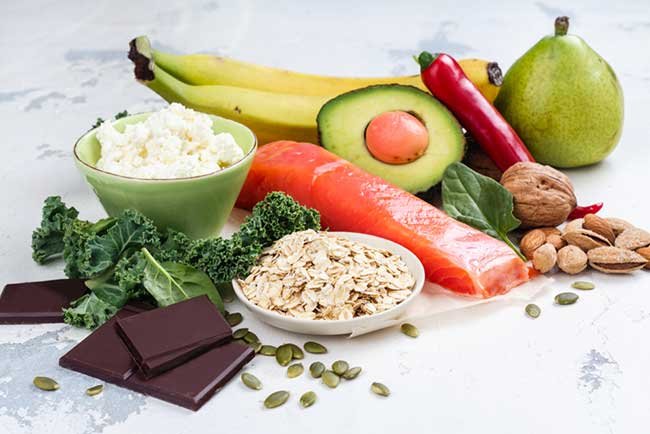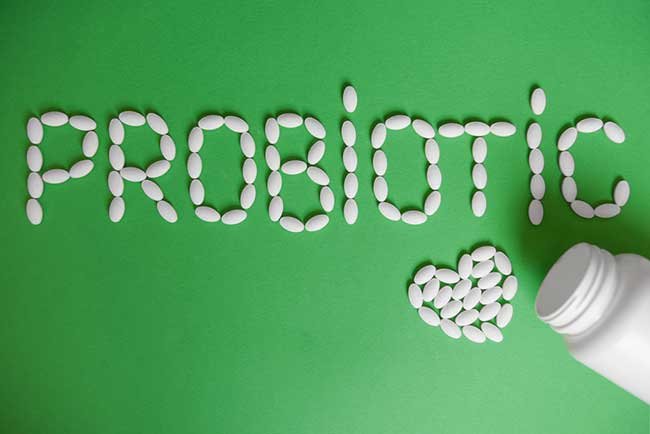Dopamine is a vital chemical carrier in the brain that has many roles.
It’s involved in reward, memory, motivation, thoughtfulness, and even in controlling body movements.
At the time of releasing large volumes of dopamine, it makes reward and pleasure feelings, which inspires you to repeat a particular behavior.
Differently, low levels of dopamine are related to low interest in things that would excite most people.
Dopamine levels usually are well controlled inside the nervous system, but there are some other things you can do increasing dopamine levels naturally.
Dear viewers, here are the 10 best ways on how to how to increase dopamine naturally in the brain.

Shutterstock
How to Increase Dopamine Naturally?
Read More: How to Improve Brain Power: 8 Effective Ways Improveove Brain Power
# Eat Lots of Protein:

Shutterstock
Proteins produce small blockings called amino acids.
There are twenty-three different amino acids, some of which your body can produce naturally and others that you must get from some foods.
A kind of amino acid called “tyrosine”– plays a vital role to produce dopamine.
Enzymes inside your body can create tyrosine into dopamine. Therefore having sufficient tyrosine levels is essential for the production of dopamine.
Tyrosine can also be produced from another amino acids called “phenylalanine.”
Both phenylalanine and tyrosine are naturally found in high protein-based foods like beef, turkey, dairy, eggs, soy, and legumes.
Studies proved that increasing the volume of phenylalanine and tyrosine in the diet can raise dopamine levels in the brain, which may develop memory and stimulate deep thinking.
On the other hand, when tyrosine and phenylalanine are reduced from the diet, dopamine levels can be down.
Some studies confirmed that very high or low eating of these amino acids can affect dopamine levels; it’s unidentified whether normal variations in protein eating would have much effect.
# Eat Less Saturated Fat:

Shutterstock
A few animal studies have revealed that saturated fats found from the animal, such as butter, palm oil, full-fat dairy, and coconut oil, may disturb dopamine signals in the brain when taken in very large amounts.
To this point, this researchers have been conducted in rats; however, the effects were exciting.
Eating fifty percent of calories from saturated fat had a lower level of dopamine signal in the reward zone of their brain, compared to animals giving the same volume of calories from unsaturated fat.
Interestingly, these changes happened without fluctuation of hormones, body fat, weight, or blood sugar levels.
Eating foods that are high in saturated fat may increase pain and inflammation in the body, causing changes in the dopamine system, but more study is required.
# Eat Probiotics:

Shutterstock
In current years, experts have found that the brain and gut are closely linked with Probiotics.
The gut is occasionally called the “second brain,” as it contains a large volume of nerve cells that create many neurochemical signals of molecules, including dopamine.
Now it is clear that some specific bacteria that live in your gut are capable to produce dopamine, which may influence mood and performance.
The study is limited. But, several studies proved that eating a large number of Probiotics can decrease anxiety and depression symptoms in both humans and animals.
Read Also: 10 Easy and Simple Ways to Improve Brain Power: DON’T MISS!
# Eat Velvet Beans:

Shutterstock
Velvet beans, also called “Mucuna Pruriens” naturally contain a high level of L-dopa, the precursor molecule to dopamine.
Some studies proved that eating Velvet Beans may help to increase dopamine levels naturally — particularly a person with Parkinson’s disease- a movement disorder that is occurred by low levels of dopamine.
One small study with Parkinson’s disease found that eating 250 grams of cooked velvet beans outstandingly increased dopamine levels and decreased the symptoms of Parkinson’s 1 – 2 hours after the meal.
Also, many studies on “Mucuna Pruriens” supplements found that they are more beneficial than traditional Parkinson’s treatments, along with having fewer side effects.
Although these foods are natural sources of L-dopa, however, it’s vital to ask your doctor before changing your diet or supplement.
# Do Regular Exercise:

Shutterstock
Exercise is suggested for improving mood and endorphin levels.
Mood improvement can be noticed after 10 minutes of aerobic movement.
Whereas these effects don’t occur for the change of dopamine levels, the animal study advised that workouts can increase dopamine levels in the brain.
A study conducted on 78 adults proved that 30-minutes of moderate to intense treadmill running sessions increased dopamine levels.
A three-month study proved that doing an hour of yoga every day remarkably increased dopamine levels.
Performing aerobic exercise regularly helps to cure Parkinson’s disease- a condition that occurs due to lower dopamine levels.
Many studies have proven that regular intense exercise can improve motor control for a person with Parkinson’s.
More study is required to find out the intensity, duration, and type of exercise that is most effective at increasing dopamine in humans; however, the current research is very predicting.
Read More: The Most Effective Ways to Exercise at Home: You can do without Going to the Gym
# Get Enough Sleep:

Shutterstock
At what time, dopamine is released in the brain, it creates alertness and wakefulness feelings.
Some animal studies showed that releasing a large volume of dopamine help to wake up early in the morning and fall asleep early at night.
On the other hand, lack of sleep disturbs these natural rhythms.
When people are forced to stay awake at night, the presence of dopamine receptors in the brain is decreased by the next morning.
As dopamine encourages insomnia, decreasing the feeling of receptors should make it relaxed to fall asleep, especially after a night of wakefulness.
But, having less dopamine typically creates other awful consequences like low attention and poor management.
Getting regular sound sleep helps to keep your dopamine levels balanced and also holds you more alert during the day.
The National Sleep Foundation suggests 7–9 hours of sleep every night is good for health for adults, along with good sleep hygiene.
Sleep hygiene can be developed by sleeping and waking at the same time every day, decreasing noise in your bedroom, avoiding caffeine in the evening.
Read More: 6 Useful Home Remedies for Insomnia or Sleeping Disorders: 100% Works
# Listen to Music for Increasing Dopamine:

Shutterstock
Listening to music can be a great method to increase dopamine release in the brain.
Some brain imaging studies have found that listening to music may increase pleasure and reward activity in the brain, which are higher with dopamine receptors.
A small study found that dopamine levels become 9% higher in the brain when people listened to instrumental music.
Music can increase dopamine levels for persons with Parkinson’s disease, improve their fine motor control by listening to music.
So far, all research on music and dopamine has applied instrumental tunes like melodic music — not any specific lyrics.
More study is required to see if specific lyrics have the same effects.
# Do Meditation:

Shutterstock
Meditation clears your mind, focuses inward, and lets your thinking with judgment.
It can be done at any time or any place. Regular practicing of yoga is linked with better physical and mental health.
A new study has found that these benefits may be due to higher levels of dopamine in the brain.
One study found that after an hour of meditation can increase 64% production of dopamine level.
It’s believed that these changes may help to maintain a positive mood and stay meditative stage for a long time.
Read More: These 13 Yoga Health Benefits will Make You a Super Person: Read How!
# Get Morning Sunlight:

Shutterstock
A person with Seasonal affective disorder (SAD) feels typically sad or depressed in the winter season if they don’t get enough sunlight.
It’s verified that low sunshine exposure can lead to a lower level of mood-boosting neurochemicals, including dopamine, but sunshine exposure can raise them.
A study conducted on 68 adults found that those who got the most sunlight exposure for 30 days had the highest dopamine receptors in their brains.
Whereas sun exposure may improve dopamine levels, it’s vital to follow a safety guideline, because staying in too much sun can be harmful.
Moreover, too much sun exposure can occur to skin damage and increase the possibility of skin cancer, so moderation is vital.
Generally, it’s suggested to limit sun exposure in peak hours when ultraviolet rays become strong, naturally between 10 am and 2 pm.
So, get enough sunlight benefits for increasing dopamine in your brain.
# How to Increase Dopamine with Supplements?
Your body needs some minerals and vitamins to produce dopamine such as iron, folate, niacin, and vitamin B6.
Lacking these nutrients may make trouble of dopamine levels to meet your body’s requirements.
Your Blood can find out if you are lacking are any of these nutrients. If so, you can take the supplement to bring back your dopamine levels.
Moreover, proper nutrition, some other supplements have been related to better dopamine levels.
These supplements include vitamin D, magnesium, curcumin, green tea, and oregano extract. But, more study is required in humans.
The Bottom Line:
Dopamine is a vital brain chemical that impacts your mood. It helps to control body movements also.
Levels are generally well controlled by the body, but there are some diets and lifestyle changes that can improve our levels naturally.
A balanced diet contains enough vitamins, protein, minerals, probiotics, and a reasonable volume of saturated fat that help your body to produce the required dopamine levels.
Lifestyle choices are also vital.
Doing exercise and meditation, getting enough sleep, listening to music, and spending time in the sun can all increase dopamine levels.








